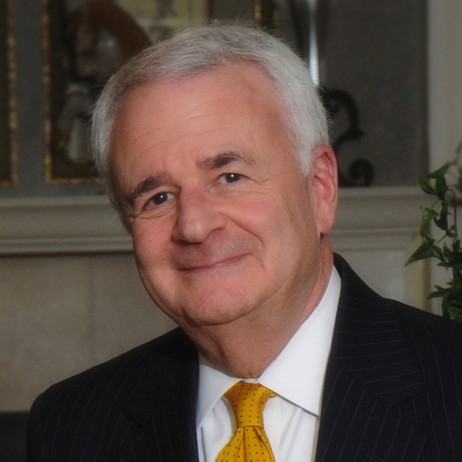In real estate, it’s often about location, location, location. And that’s probably most true for a local think tank dedicated to urban design.
The Memphis Regional Design Center, an initiative born two years ago in part by the local
chapter of the American Institute of Architects (AIA), is currently looking for a home in Midtown, downtown, Soulsville, or the University of Memphis area.
“We’re looking for somewhere that would be easy for people to drop in and attend a forum or workshop,” says Jim Lutz, chair of the center’s organizing committee. “Most of the other design centers we’ve visited are set up more as a storefront.”
The local design center began with a $10,000 grant from the AIA, as well as a $50,000 grant from the city of Memphis. Along with the University of Memphis, the Urban Land Institute, and the UrbanArt Commission, the AIA hopes the center will serve as a venue for dialog between members of the community, act as a voice for smart growth and sustainable policies, and emphasize the importance of good design on both public and private projects.
But its location isn’t the only important decision the center is facing.
“We’re trying to determine what our first projects will be,” says Lutz, an assistant professor of architecture at the University of Memphis.
They’re looking for something “where we can work with a client, whether it be a neighborhood or an organization, and really make a difference and help them improve their part of Memphis,” Lutz says.
After mentioning in one meeting that the center was looking for its first project, the center had more than a dozen applicants by its next meeting. The projects range from developing master plans for entire neighborhoods to plans for specific building sites.
The design center project began several years ago with a local AIA forum that looked at similar centers in Nashville and Muncie, Indiana. Memphis is the only major metropolitan area in Tennessee that doesn’t have a design center.
At the time, AIA Memphis executive director Heather Baugus said they wanted to create something that responded to the community’s needs.
“It would not only be an advocate for the community,” she said, “but an entity that the city and the county looks to for advice on public issues.”
Recently, the Nashville Civic Design Center hosted a mayoral forum on design issues and held public meetings that resulted in an ordinance requiring future Metro Davidson County building projects of more than $2 million or 5,000 square feet to be Leadership in Energy and Environmental Design (LEED) certified.
One element that stood out was the Nashville design center’s public education program. A similar program, called Urban Design 101, will be started here.
“The idea is to train a core constituency to be well-versed in regional and city planning,” Lutz says. “Then they can go back to their neighborhoods and serve as leaders there.”
The class, which should run roughly eight weeks, would be held several times a year.
“We have a lot of neighborhoods that are distressed and would really benefit from some good planning,” Lutz says. “I hope if we arm people with the educational tools necessary, they’ll be better able to understand what those particular challenges are.”
For those who can’t wait for the classes, the center will co-sponsor a free talk by city planner and author Jeff Speck. The talk, entitled “The City Livable: Modest Suggestions for Making Memphis Great,” will be May 1st at Christian Brothers University’s Buckman Hall.
“During the week, [Speck] is going to meet with people and tour the city. He’ll gather his impressions and then make them at a public presentation,” Lutz says. “He’ll be looking at the city with a fresh pair of eyes and offering his observations. As someone who has looked at a lot of cities, he might see where opportunities for improvement might lie.”
Lutz, who was recently awarded AIA Memphis’ highest honor, the Francis Gassner Award, is the driving force behind the University of Memphis’ sustainable model home project being built in Uptown.
“Memphis is a city where an individual can make a difference,” Lutz says. “That’s what I love about this place: There are a lot of opportunities to put things in the right direction.”
During a presentation to the City Council recently, Lutz was asked if he thought the design center would survive. Council members didn’t want to waste grant money on a non-performing entity.
“We’re here to stay,” Lutz says. “There are a lot of great initiatives just about to come to fruition, and I think the timing is right. Memphis is ready for what a design center can provide.”
